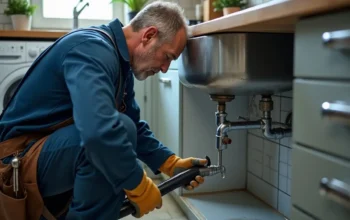
Are you looking for ways to save money on home renovation?
DIY work is an alluring prospect.
The idea of getting a professional to do something you can do yourself seems wasteful. But when it comes to electrical work, there is a problem…
Electrical systems are different.
DIY electrical renovation mistakes cost you money.
Bad wiring leads to house fires, injuries, and repair costs that erase any savings.
For example, each year there are 51,000 electrical fires in homes. And 33% of those fires are caused by electrical system issues.
Contents
DIY mistakes with electrical systems lead to fires.
Homes that require renovations are where we find these statistics. People tear down walls, replace outlets, and start messing with the wiring.
If they knew the risks, they would call an electrician.
We have seen what happens. So in this post, we cover common mistakes with DIY electrical renovations.
The goal is to help you make an informed decision.
Let’s get into it.
Table of Contents
- When DIY Renovations Get Risky
- Biggest Mistakes with DIY Electrical Renovations
- Reasons Professional Electrical Services Save Money
- Safety Standards For DIY Electrical Renovations
- Final Thoughts
When DIY Electrical Renovations Get Risky
DIY home renovation is usually started with good intentions.
You watch videos and feel prepared. You buy the right tools, take measurements, and start ripping up walls.
Honest to God, some electrical work is fine.
Replacing outlets, light switches, or installing new lighting is typically fine.
No risk of electrocution. No fire risk.
BUT…
The moment you start moving circuits, changing breakers, or upgrading an electrical panel, you have moved past the safe zone.
The wiring in your home is built to a standard. It must be expertly connected per code to avoid safety issues.
One mistake leads to fire risks that may not manifest for years.
That is why people work with Dynamic Electricians before they take on complex DIY renovations alone.
These electrical experts can handle the job with confidence.
The job will be completed the first time without need for follow ups and repairs.
Let’s consider the risks here:
You save $500 on your electrical work.
That sounds like a good thing, right?
Except your DIY work is faulty.
Fast forward 3 years when your electrical fire breaks out.
Your house burns down. You’re looking at $50,000 of fire damage.
Save $500 or lose $50,000?
You can see our point here.
DIY electrical work should be handled by professionals.
Biggest Mistakes with DIY Electrical Renovations
DIY electrical renovations are a mess in the making.
You just need to know where.
Here are the most common mistakes DIYers make with electrical renovation projects:
Overloading Your Electrical Panel
Think of your electrical panel as the central hub of your home.
Attempting to add circuits without understanding your panel’s capacity will lead to problems. Tripped breakers and more.
We have modern appliances that draw more power than older versions.
Your 100 amp electrical panel just may not be able to handle:
- The high efficiency HVAC systems
- The electric vehicle charger you added
- All of the smart devices
- The multiple large appliances you now own
You need to have an idea of limits.
Professionals can test your panel capacity and help you choose upgrades if you are out of capacity.
Ignoring Electrical Codes
It is shocking how many DIYers do not understand or know electrical codes.
People see them as a pain. They want to do the work in their way.
It does not matter where you live or the age of your home.
Electrical codes exist for good reasons.
Codes protect the safety of your home. Violate one and you have now put your family at risk.
Your home inspector will notice unpermitted electrical work or improper junction boxes. That’s the end of your deal.
Using the Wrong Wire Gauge
DIYers commonly make this mistake.
They think all electrical wire is the same.
WRONG.
Wire gauge is crucial for safety. Each gauge has an ampacity.
Small wire gauge can overheat and lead to fires.
Fire that will melt insulation and wire connections.
It can even damage sensitive electronics.
Wire is color-coded by gauge. You need to know what the standard is and never go smaller than that.
- 14-gauge wire is for 15-amp circuits
- 12-gauge wire is for 20-amp circuits
If your circuit breaker requires x-gauge, you can go smaller but not larger.
Professionals do this work every day and know by heart.
Skipping Junction Boxes
If I could pin down one of the most common, hazardous DIY mistakes, this is it.
DIYers often hide wire connections in walls without junction boxes.
EVERY wire splice needs to be inside a junction box.
Boxes protect wire connections and contain sparks or heat in the event of a problem.
The alternative? DIYers use tape and shove connections into the wall.
Done correctly these connections will eventually fail.
Exposed live wires are a fire hazard inside your walls.
Junction boxes are cheap.
A house fire is not.
Poor Outlet Placement
Something else many DIYers do not consider is planning the location of outlets.
Their thought process: The wall is bare. Install the outlet here.
But in six months, you will have furniture and items that require extension cords.
Extension cords should not be used permanently.
Extension cords are a fire hazard when used as permanent wiring.
A professional plans where outlets go strategically.
This means thinking through future furniture, appliances, and needs.
DIYers do not.
Not Testing Your Work
And now for the worst DIY mistake of them all:
Professionals test everything. Often multiple times.
DIYers cut corners and assume it works once they flip the breaker.
Do not be this person.
Testing includes:
- Voltage checks
- Continuity testing
- Ground fault testing
- Load testing
If you do not have testing equipment, you are guessing.
Guessing with electricity is not a good idea.
Reasons Professional Electrical Services Save Money
We know what you are thinking:
“Electricians charge a fortune. That is why I am doing it myself!”
But let us go through the math people fail to see:
A local electrician may charge $1,500 to complete a job you think is $300 in materials.
That is a $1,200 savings!
Unless you factor in:
- Tools you need but will only use once
- Time spent researching how to do it
- Mistakes that cost more to fix
- Permit fees
- Insurance headaches if there are problems
- Time costs for you doing it yourself
A single electrical fire that causes $300,000 in damage is not covered by your insurance if you do DIY work.
Professionals have:
- Years of training and experience
- Proper testing equipment
- Knowledge of the latest codes
- Permits and inspections
- Liability insurance
Suddenly the “expensive” service does not seem like such a bargain.
Safety Standards For DIY Electrical Renovations
Electrical codes and safety standards change over time.
Codes that may have been acceptable ten years ago may not meet current requirements.
Standards to be aware of include:
Ground Fault Circuit Interrupters (GFCI)
Required in wet areas like kitchens and bathrooms. They cut off power when a ground fault is detected.
Arc Fault Circuit Interrupters (AFCI)
Required in most living spaces to detect arcing that can start electrical fires.
Proper grounding
Every circuit should be grounded to a safety path if there is an issue.
Safety standards are not things to guess at.
The risk is too high.
Final Thoughts
DIY renovations are a rewarding way to improve your home.
They bring pride in a job well done and can be money savers on certain projects.
Electrical work is not one of these projects.
Electrical work needs expertise.
Expertise that comes with years of training and practical experience.
Risk is part of DIY projects.
DIY electrical work brings a risk that goes well beyond cosmetic issues.
Painting and new floors are fine for DIY work. Electrical work is not.
For electrical work, call in the professionals.
Your family’s safety is worth every penny.
The few hundred dollars you think you are saving is not worth the potential risk and cost of getting it wrong.
Be smart.
Stay safe.



